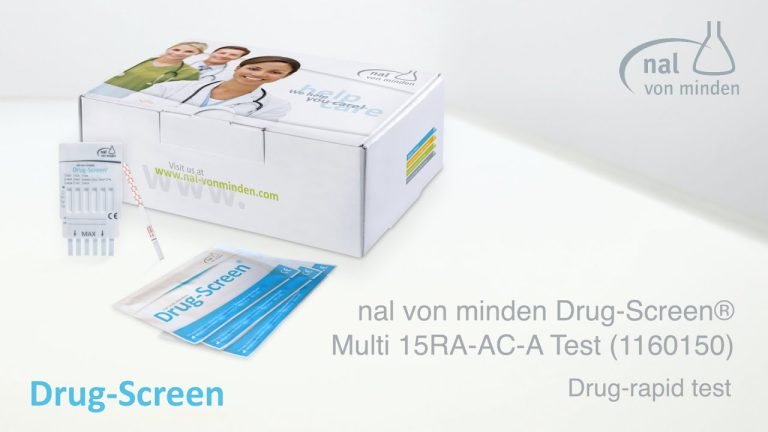Concerta and Urine Drug Tests: What You Need to Know

Are you worried about whether Concerta will show up in a urine drug test? If so, you're not alone. Many people who take this medication for ADHD wonder if it will be detected in a drug screening. In this article, we will explore the likelihood of Concerta showing up in a urine drug test, and provide you with the information you need to know.
Can ADHD medication be detected in a urine test?
Yes, ADHD medication can show up in urine tests. Individuals treated with amphetamines or lisdexamfetamine will generally test positive for amphetamine during urine screening. This is important to keep in mind for anyone who may be subject to drug testing, such as those applying for a new job.
In order to avoid any misunderstandings or potential issues, it is recommended for individuals taking ADHD medication to notify a future employer beforehand of likely test outcomes. They can also carry with them a certificate for medication, which may help to clarify the results of the urine test. It's always best to be proactive and transparent when it comes to medication and drug testing.
Overall, it's important for individuals taking ADHD medication to be aware of how it may affect urine tests. Being open and proactive about medication use can help to prevent any misunderstandings or complications during drug screening processes.
Which drugs can result in a failed urine test?
If you recently failed a urine drug test, it might be due to a false positive caused by common over-the-counter medications like ibuprofen or diphenhydramine. Other drugs like ketamine or tramadol can also trigger a false positive result. It's important to consider all possible sources of the positive result before jumping to conclusions about drug use.
What is the drug class of Concerta?
Concerta falls under the drug class of “Schedule II Stimulants.” This classification is used by the Drug Enforcement Agency for drugs with a high potential for abuse, especially among individuals who do not have ADHD. Other drugs in this class include Dexedrine, Ritalin, and even cocaine.
The designation of Concerta as a “Schedule II Stimulant” signifies its high potential for abuse, particularly among those without ADHD. This classification places it in the same category as other well-known drugs such as Dexedrine, Ritalin, and even cocaine. It is important to use Concerta only as prescribed and to be aware of its potential for misuse.
Concerta, like other drugs in the “Schedule II Stimulant” class, is closely monitored by the DEA due to its high potential for abuse. This classification serves as a reminder of the importance of using Concerta responsibly and only as directed by a healthcare professional. Being aware of its classification can help individuals understand the potential risks associated with its misuse.
Understanding Concerta and Its Impact on Urine Drug Tests
Concerta, a commonly prescribed medication for attention-deficit/hyperactivity disorder (ADHD), contains methylphenidate, a central nervous system stimulant. When taken as prescribed, Concerta can significantly improve focus and reduce impulsive behavior. However, it's important to note that methylphenidate can show up on urine drug tests, potentially leading to false-positive results for amphetamines. Understanding the impact of Concerta on urine drug tests is crucial for individuals undergoing drug testing, as well as for healthcare professionals interpreting the results. It's important for both parties to be aware of the potential implications of Concerta on drug tests to ensure accurate and fair assessments.
Navigating Urine Drug Tests with Concerta Use
Are you using Concerta and facing a urine drug test? Navigating urine drug tests with Concerta use can be a concern for many individuals. It's important to understand how Concerta may affect the results of a drug test and to be prepared for any potential inquiries from healthcare professionals. By staying informed and discussing any concerns with a healthcare provider, you can navigate urine drug tests with confidence and peace of mind.
Concerta, a commonly prescribed medication for ADHD, contains methylphenidate which may be detected in urine drug tests. It's essential to communicate with healthcare professionals about your Concerta use and the potential impact on drug test results. Being proactive and transparent about your medication can help ensure accurate test results and alleviate any concerns. With open communication and a clear understanding of how Concerta may affect urine drug tests, you can navigate this process with ease.
The Truth About Concerta and Urine Drug Tests
Are you concerned about taking Concerta and its potential impact on urine drug tests? Let's get to the bottom of this. Concerta, a commonly prescribed medication for ADHD, contains methylphenidate, a stimulant that can show up on urine drug tests. However, it is important to note that Concerta is a legally prescribed medication and should not cause any issues with drug tests if taken as directed by a healthcare professional. It is always best to inform the testing facility or employer about any prescribed medications before taking a drug test to avoid any misunderstanding.
In conclusion, while Concerta can show up on urine drug tests due to its active ingredient, there is no need to worry as long as it is taken as prescribed. It is important to be transparent about any prescribed medications when undergoing a drug test to ensure accurate results. Rest assured, taking Concerta as prescribed should not cause any issues with urine drug tests.
In conclusion, it is important to be aware that Concerta, a commonly prescribed medication for ADHD, can show up in a urine drug test. It is crucial for individuals who are taking this medication to inform their healthcare provider and the testing facility to avoid any potential misunderstandings. By being proactive and transparent about their medication, individuals can ensure that their drug test results accurately reflect their prescribed treatment.
